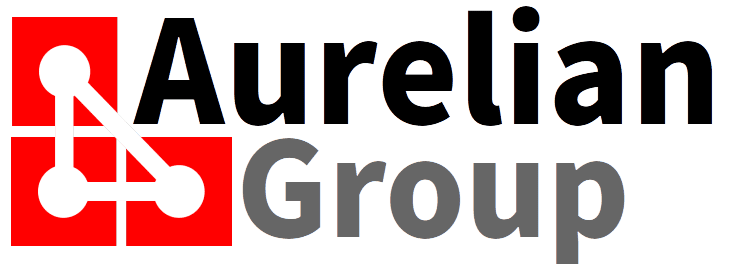On 28 December 2023 published 4 predictions for 2024 (read the article here) - it is now time to take stock and see which of these predictions have materialised, which have not (yet), and which were completely off the mark.
1. Continued disruption of the global supply chain
I predicted the global supply chain to continue to show signs of disruption - as a consequence of the global disruption of the 2020-2021 COVID era, or continued/new geopolitical events as well as government policy with regards to energy. For this you'd hardly need a crystal ball - however, the causes are more diverse, yet the severity of the consequences in some cases limited, in others worse than predicted.
The impact of energy cost on inflation has been significant. Australia continues to have surging energy prices, some due to our dependence on global markets, and some due to policy.
The housing crisis has morphed into a monster that seems out of control - demand is soaring, yet supply falls far behind. Since the Australian birth-rate is at 1.5 births per woman - well short of the 2.17 required to sustain the population - and it has been below that number for decades, the logical other point of demand is net-immigration. Commercial real estate is indicated to show CAGR of 8-9% - yet the office vacancy rates in the capital cities are still quite high (on average around 10%) - to reconcile these numbers, one could look into a higher demand for industrial space (given global supply chain issues, increased local inventory stocking?).
Verdict: Prediction was largely correct on the outcome, yet the factors driving the pressures were more diverse with each having a more subtle influence, each compounding on the other.

2. Increased cost of compliance
The cost of compliance to the ever-increasing pile of legislation has not decreased. However, the predicted increase to small business has not materialised across the board - where legislators seem to be more focused on compliance with regards to individuals. The push for DEI from a legislative or social engineering perspective seems to have dissipated, and has not been replaced with DEI under another name. It is not gone, but it is not as evidently "pushed" as it was 2 years ago.
Verdict: Prediction was too pessimistic on the compliance cost alone. One may argue that the other pressures on business, which directly affect cash-flow and profitability, have forced compliance to take a backseat. Unfortunately - compliance pressure has not eased much either.
3. "Zombie Apocalypse" due to cost of capital
Let's start with a quick reminder of the concept "Zombie Company": it is an organisation that does not make a profit, hasn't made a profit in a long time (if ever), and is not on the pathway of turning a profit any time soon. These companies solely exist due the "low cost of capital" - with interest rates on historical low levels, capital was relatively easy to come by. This has now changed, and with the rise of interest rates, so does the cost of capital. Every company is now under extreme pressure to provide "return on investment:.
While some companies have folded, and some have attempted a restructure their operations - there certainly have been many "reorganisations" that resulted in job-losses, especially non-essential jobs, as well as deemed non-essential units have been lost and disbanded.
As for small businesses - the increased cost of capital has hit hard, not only in "Zombie Companies" - but in regular companies that simply had to invest in the future, or pay off the cost of keeping the doors open and the lights on in the past period.
Verdict: This scenario is still playing out. It certainly is more difficult raising capital at the moment - hence a self-cleansing of the business landscape is weeding out those that have no realistic pathway to short to mid term profitability.

4. Cost of living pressures a further inflationary cycle
The housing and energy crises have fanned the flames of the cost of living crisis. In addition, the fuel to this fire - unrestrained deficit spending - has not been reduced. The interest rates as an instrument to curb inflation has been wielded, but because of the "overheating" of the economy NOT being the reason for the price increases, this only exacerbated the situation.
The value of the Australian Dollar has diminished compared to commodities like Gold and Silver. This trend will continue as further trust the Australian Dollar is eroded due to the across the board lack of trust in the actions of the Government (current or next), the Reserve Bank of Australia, or the banking sector in Australia. This is not in a small part due to erosion of trust in the global banking system, which uses debt to create money. The trust in the US Dollar is also remarkably low, due to escalating sanctions and the national debt in the United States of America. A dept that is so large -there are only two ways out of it - Inflate or Default. Either option will have significant impact on global trade, and the position of the Reserve Currency. Already we see initiatives for settling transactions outside of the US dollar.
Verdict: This scenario is still playing out - there does not seem to be a short term fix, and long term fixes will increase short term pain - the political will to execute on such plan during an election year will be non-existent - and that is considering there is such political will in the first place. Unfortunately - everything causing the lead up to the inflation levels of 2024 is still in place, and added some more.
Back to the fundamentals
Reality often fails to be fit into a predictive model - there simply are too many variables to take into account. However, business fundamentals have not changed based on the events of 2024.
- Be profitable - growth is not an excuse for loss. Growth is not an excuse for loss - not when the days of "free money" are well behind us. Profit is nothing but the reward of adding your value, which you can choose to invest in the growth of your business.
- Manage fixed costs - fixed costs are those things you have to keep paying, no matter what the market does. Be frugal on fixed cost - extend it only to what you need to turn a profit. Foregoing on the swanky office with a harbour view can save you thousands of dollars per month. Be careful when it comes to personnel - whilst there is fixed cost versus variable to consider when moving to a contractor base, also consider whether the labour performed is considered "commodity" or specialised.
- Support your local community - sometimes going big means paying attention to the small. An interdependent local community forms a more stable backbone than the anonymous clients from the internet - where you compete to other companies as disconnected from "their" markets as any. The more narrow your niche, the larger the geography of your local community.
- The government will not help you - If you felt the government support as a "sword of Damocles" hanging over your head in 2024, then be grateful the hair has not yet snapped. Have you used that time to prepare for a goods or services offering that clients are willing to pay a fair market price for? If you have lost support in 2024 - what were your strategies to stay afloat? Given 2025 is an election year in Australia, the government finances are as abysmal as ever, probably worse (which will not stop any party in government funding pet projects for their respective "special interests" - do not count on any funding coming your way.
The business cycle continues - and businesses will go with the ebb and the flow of this cycle - keep the course straight, ride the waves head-on, and we will see you next year at the end of 2025!

Aurelian Group to help you navigate the Business Applications for Success
A key component of navigating the ebbs, the flows, the calm and the storm of the business cycle is a robust, comprehensive, and integrated business system. Aurelian Group takes the headache out of ICT, and is your partner in designing, configuring, and maintaining your business applications - the central nervous system of your business.
